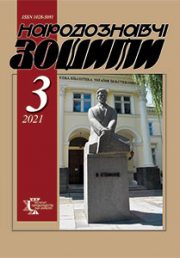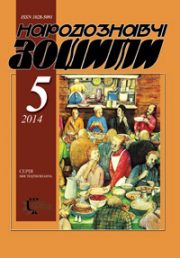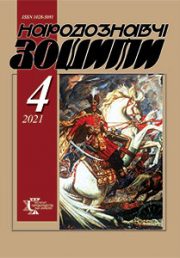The Ethnology Notebooks. 2019, 1 (145), 157—167
UDK 069-027.551:7
DOI https://doi.org/10.15407/nz2019.01.157
WHY RESEARCHER SHOULD POSSESS AN ART’ COLLECTION?
SELIVACHOV Michael
ORCID ID: https://orcid.org/0000-0001-9199-0270
Doctor of Arts (hab), Professor,Head of the Design and Technology Department Kyiv National University of Culture and Arts,
36, E. Konovalets, str., Kyiv, Ukraine
Contacts: e-mail: miksel@ukr.net
Abstract. An art researcher (if he/she does not work in a museum) cannot be successful without his own mini-museum. It allows him/her to communicate with exhibits on daily basis, gradually revealing all the deeper layers of artistic content, figuring out, if necessary some technical details. It is important to perceive the objects of art by all five senses, and not just a sight, as it is possible in an ordinary museum.
This article characterizes the most interesting things from the author’s collection (mostly samples of folk art), as well as the circumstances of their acquisition and the stages of forty-year formation of the collection. Such mini-museums are very useful for professional work.
Keywords: decorative art, early printed books, folk art, private collections, traditional crafts.
Received 24.01.2019






